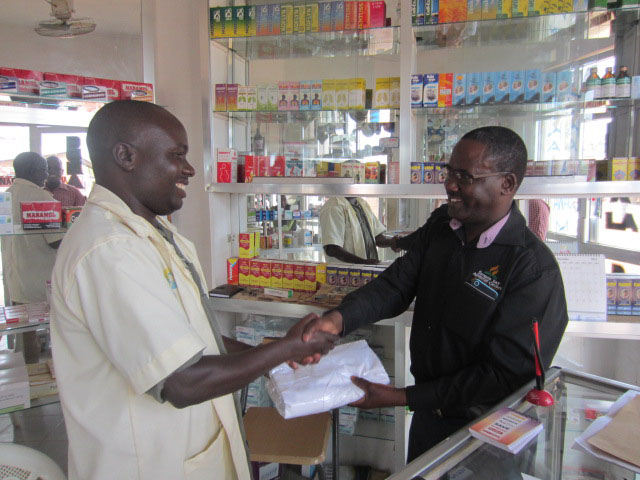Ways to maximize ADDOs for service delivery
Stakeholders recently validated findings from an assessment of accredited drug dispensing outlets (ADDOs) in Tanzania. SHOPS Plus hosted the meeting in which participants discussed the results of the assessment and opportunities that could be leveraged to improve the outlets’ technical and managerial capacity to deliver malaria, HIV, and family planning services in Tanzania.

SHOPS Plus conducted the assessment in December 2016. The project team consulted with program stakeholders from the Ministry of Health, the Pharmacy Council (the main regulatory body for ADDOs), USAID implementing partners, banks, microfinance institutions, and insurance companies. The team also interviewed 40 ADDO owners and dispensers from the Nyamagana district in Mwanza. The assessment focused on five key areas: policy and governance, health services and commodity management (specifically family planning, malaria, and HIV), human resources for health, business practices, and demand and supply-side health financing.
Opportunities to enhance engagement
SHOPS Plus shared the preliminary assessment findings at the validation meeting. Key findings and possible opportunities for ADDOs discussed include:
- As a result of the national malaria testing campaign, there is high demand for malaria testing in ADDOs. A pilot to expand malaria testing to these outlets is currently underway and will expand nationally next year.
- There is high demand for family planning, particularly among youth, but ADDOs are only allowed to sell a limited number of products.
- The presence of educational materials at ADDOs could be an opportunity to provide more information to clients.
- Providing training and counseling for ADDO owners could be an opportunity to improve quality.
- Well-run, regulated ADDO associations and networks could be an opportunity for self-regulation, peer supportive supervision, access to finance, and a platform for pooled procurement.
- Increased scope and diversity of services and commodities delivered through ADDOs may incentivize owners and dispensers to comply with the Pharmacy Council regulations on record keeping, reporting, and dispensing practices.
- Continued development and implementation of health insurance products for the ADDO market could combat clients’ inability to pay.
- Increased access to financing could be an incentive for ADDO owners to strengthen financial records and improve inventory management.